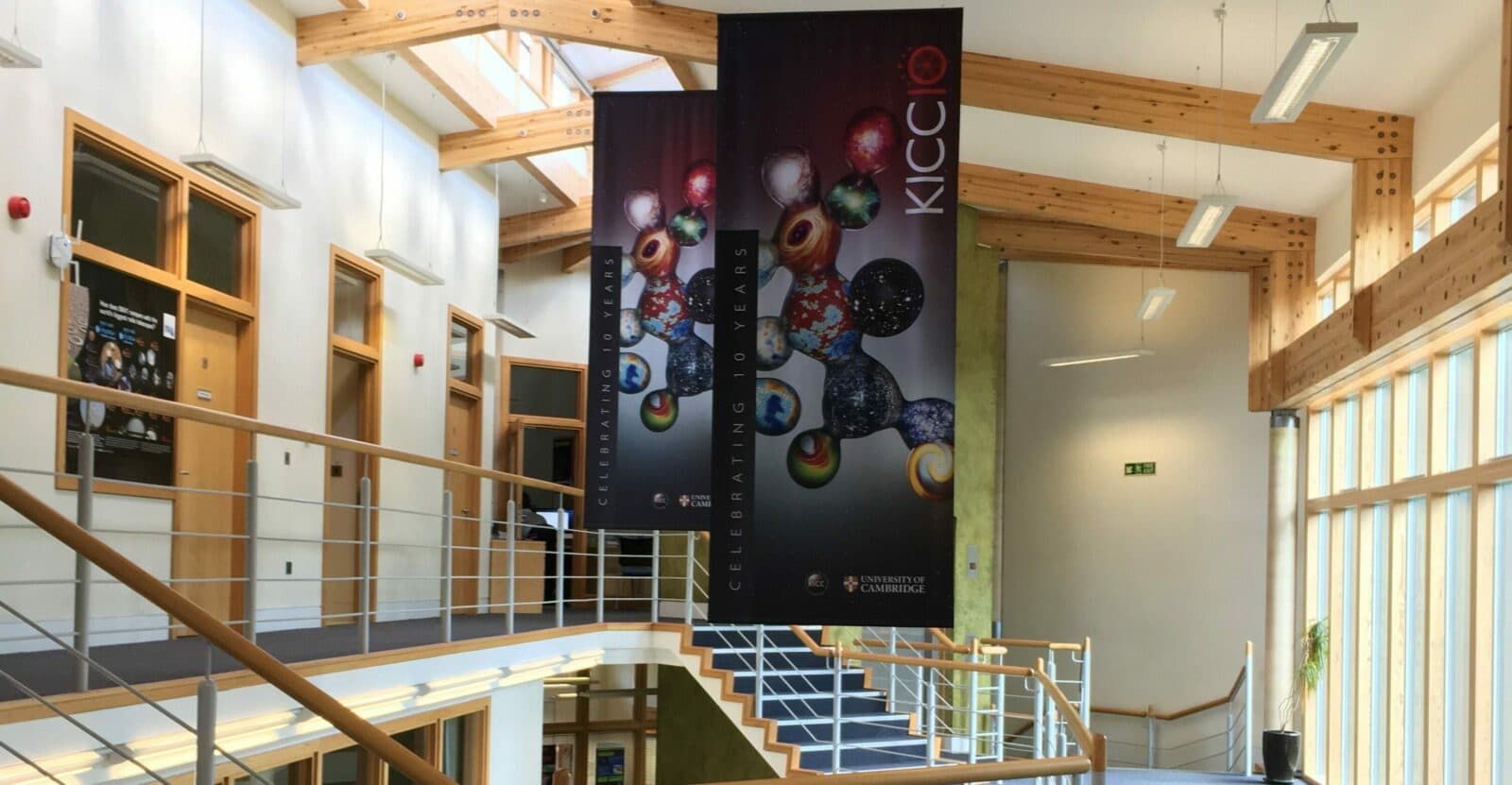Blazing New Science Trails at the Kavli Institute for Cosmology, Cambridge
by Adam Hadhazy
After 15 years of operations, KICC is still going strong and is continuing its ambitious research program under a new Director

The Author
The Researcher
Ever since its founding in 2006, the Kavli Institute for Cosmology, Cambridge (KICC) has been in the business of unraveling the physics of the early universe. That business is now continuing under the new leadership of Anthony Challinor, who recently stepped into the Director role as of September 1, 2021.
It's a role that suits Challinor, seeing as he has been at KICC since the very beginning and given his research interests in, well, the very beginning of everything, around 14 billion years ago in the Big Bang.
As Director, Challinor is looking to help carry on KICC's rich legacy not only in cosmology, but also in astrophysics and engaging with the scientific community and public.
"As well as maintaining excellence in areas traditionally associated with KICC, we aim to be agile in responding to exciting new opportunities as they arise," says Challinor, who is a Professor of Cosmology and Astrophysics at the Institute of Astronomy (IoA) at the University of Cambridge.
For instance, KICC has been expanding into current astrophysical "growth" areas such as exoplanetary studies and gravitational waves, the latter of which were directly detected for the first time just in 2015.
The institute is sticking with its bread and butter too, though, via its members' involvement in cutting-edge cosmology and galactic science projects. "KICC is strongly placed to play a leading role in some of the major facilities and programmes that will dominate cosmology and extragalactic astrophysics for the next decade," says Challinor.
One such effort is the James Webb Space Telescope, NASA's next flagship observatory set to launch in December after about 25 years of development. Among its many goals, the Webb telescope is expected to detect and characterize the first generations of galaxies. KICC researchers are heavily involved in a key instrument aboard Webb that will help make this science possible. "[Webb] will be a major focus of work at KICC," says Challinor.
Another important effort centers on the Simons Observatory, presently being constructed at extreme high altitude in Chile. The telescope will gather the oldest light in the universe, known as the cosmic microwave background (CMB), and look for patterns within this light that speak to the primordial properties of the universe. KICC members have long studied the CMB, prominently with the European Space Agency's Planck satellite, which gathered data from 2009 to 2013. The Simons Observatory looks to improve on Planck's then-world-beating results by boasting 10 times the sensitivity—all the better for sussing out even subtler signals. What's more, as the observatory scans the sky in precious millimeter light, it will shed literally new light on how galaxies change over time and, closer to home, the nature of the material between the stars in our Milky Way Galaxy.
Challinor is particularly enthused about this project, seeing as it is right up his alley. "I’m excited to be involved with the Simons Observatory," he says. "Over its five-year nominal survey, we can look forward to many exciting discoveries not just in cosmology, but also in galaxy evolution, the physics of the interstellar medium of our Galaxy and the transient millimeter-wave sky."
In all that KICC does, it draws upon the interests and specialties of the faculty from the three parent departments at Cambridge University that KICC seeks to bring together. Those departments are the aforementioned IoA, Cavendish Astrophysics, and the Department of Applied Mathematics and Theoretical Physics (DAMTP). "Our approach is very much 'investigator-driven," says Challinor.
KICC has come a very long way since its origins fifteen years ago. KICC started out small, but "through the success of KICC researchers in winning grants and other sources of research support and the continued generous support from The Kavli Foundation and other donors, we have a large, vibrant, outward-facing community," Challinor says. "Office space in the building is becoming a real issue!"
KICC's activities have likewise grown significantly over the years, with the institute now regularly holding international workshops. The institute also welcomes visitors for both short- and medium-term visits and invites top researchers to deliver Kavli Lectures.
Alongside this growth in research areas and scientific community engagement, KICC has also extended its outreach activities outside of the local Cambridge area. For instance, through the flagship AstroEast program, KICC is now restarting visits to elementary and middle schools in the East Anglia region in the counties of Norfolk, Suffolk and Peterborough. The program involves KICC members conducting teaching sessions and workshops, as well as engaging with science clubs. A project-mentoring extension of the program is in the works, aimed at students aged 14 to 18.
In these ways, KICC is helping inspire and train the next generation of astrophysicists and cosmologists. It's one more reason why the future is bright at KICC as Challinor takes the helm.